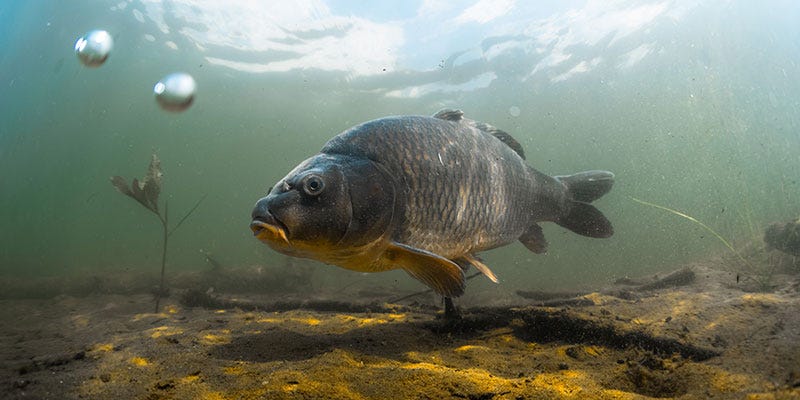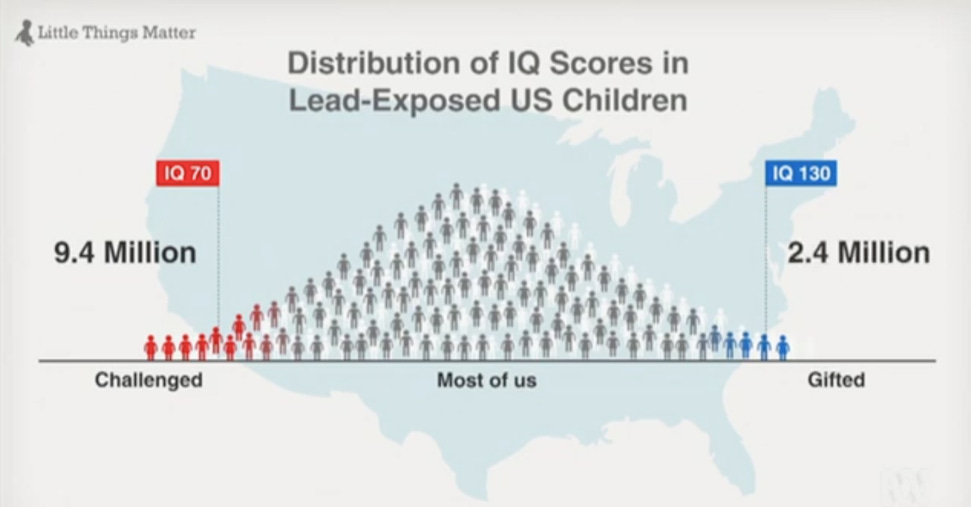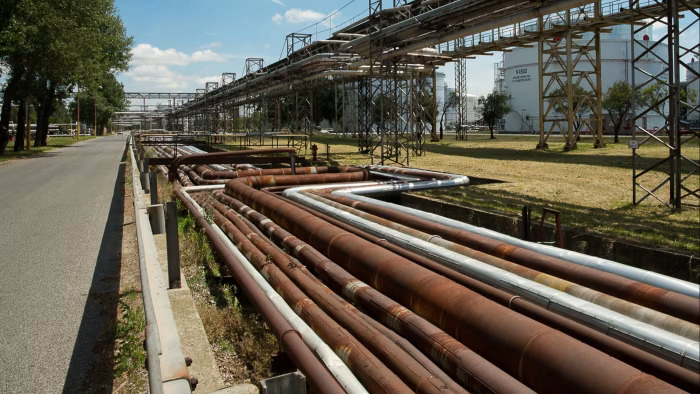This week, Robert F. Kennedy Jr sat down for his first interview with Tucker Carlson since announcing he was suspending his presidential campaign and throwing his support behind former President Donald Trump.
In that interview, Kennedy echoed the thoughts of Calley and Casey Means, a brother and sister team, who’ve been raising concerns about children’s exposure to the toxic food environment.
In particular, Kennedy mentioned endocrine disruptors, which are chemicals in our food and water that can interfere with the body’s hormone biosynthesis and metabolism.
Kennedy spoke about how the poorly regulated use of these synthetic chemicals in the environment could affect fertility, sperm counts and reproductive development.
He talked about how the onset of puberty is occurring far earlier in children than it was decades ago, and that these changes may have lasting repercussions on a child’s mental and physical development.
It is true.
In 2020, an analysis of global data found the average age of puberty onset for girls aged 8 to 13 years in the US has been dropping by about three months every decade over 40 years.
It means that a growing number of children are developing breasts, acne, pubic hair or a deepening of the voice before they reach teenage years.
Exposure to these chemicals begins in utero, and can have a significant impact on the developing foetus.
Several years ago, when I was working as a filmmaker for ABC TV in Australia, I produced a documentary about the ‘chemical soup’ of modern life and its potential health consequences.
I examined the regulation and testing around industrial chemicals in the environment, and spoke to experts around the world who shared the same concerns as Kennedy.
Linda Birnbaum, a toxicologist and former director of the US National Toxicology Program, was very critical of the regulation of industrial chemicals in America.
“In the US, we basically consider chemicals safe until proven otherwise,” she said.
Birnbaum was particularly concerned about foetal exposure to chemicals. Endocrine disruptors such as Bisphenol A (or BPA) can cross the placenta and reach a developing foetus.
She said it’s like “throwing a monkey wrench into the system and it can never recover …so you’ll have permanent change.”
Researchers were first alerted to the impact of endocrine disruptors in wildlife after observing the widespread feminisation of male fish in English rivers that were polluted with effluent, containing biologically active oestrogen.
Similarly, a chemical spill in Florida’s Lake Apopka led to alligators exhibiting significantly smaller penises (24% decrease) and lower testosterone levels (70% lower) when compared to alligators of similar size in Lake Woodruff.
In humans, making ‘causal’ links to reproductive changes is more difficult, but Australian experts say a 50% increase in testicular cancer, for example, is “too fast to be entirely genetic, and therefore is likely to be environmental.”
John Aitken is a world leader in reproductive biology with a focus on male reproductive health and biology of mammalian reproductive cells. He says the development of testes in the womb is a very “sensitive barometer” of environmental toxicants.
“When environmental chemicals hit the testes, there are some cells sitting in the testes that are of a very primitive kind, and they respond very abnormally to that signal and give you that testicular cancer (later in life),” said Aitken.
Andrea Gore, a toxicologist at the University of Texas, spearheaded a report by the Endocrine Society after doctors began noticing an increase in reproductive problems and disorders of puberty and wondered if endocrine disruptors were to blame.
The dose is crucially important for any toxicological consideration. Often industry studies examine the safety of a single chemical for short durations, but in the real world, we are repeatedly exposed to a cocktail of chemicals, which render many of the studies irrelevant.
Ian Shaw, professor of toxicology at the University of Canterbury, said that hormones work at “infinitesimally tiny doses” and the doses of oestrogenic chemicals in food and water that children are exposed to are “well within the range of doses to have a biological effect.”
Bruce Lanphear, a health sciences professor at Simon Fraser University, said that even low levels of chemicals like lead and flame retardants, can have an impact on brain development.
These chemicals act as “dopaminergic toxicants” which disrupt the pre-frontal cortex – the part of the brain that makes us human. US data show that exposure to endocrine disruptors like lead is associated with a 5-point decrement in IQ.
“When we see this on a population level, the impact is phenomenal,” said Lanphear.
In the US, for example, if you shift the mean IQ by 5-points, it leads to an increase in children who are considered ‘challenged’ (from 6 to 9.4 million). And there’s a corresponding decrease in ‘gifted’ children (from 6 to 2.4 million).
“The pattern is pretty clear,” said Lanphear who has advocated for more stringent regulation of industrial chemicals. “We should expect that some of these chemicals [turn out ] to be toxic, and we should no longer be using our children as guinea pigs to find out when they are toxic.”
Until recently, Lanphear was co-chair of the Health Canada’s scientific advisory committee on pesticide management, but resigned in June 2023 over the agencies lack of transparency and scientific oversight.
In his three-page resignation letter, Lanphear said he felt the committee, and his role as co-chair, “provides a false sense of security” that Health Canada is protecting Canadians from toxic pesticides.
Some chemicals are stored in our body for years, whereas others can be metabolised and excreted quickly.
BPA, for example, is a short-lived chemical used to make plastic water bottles. It does not require the same safety testing as if it was added to food, but it still leaches out of the plastic and into the water that will be consumed.
Industry has responded to these concerns by developing plastics that are “BPA-free,” but BPA is often substituted for Bisphenol S (or BPS), another unregulated chemical that can also leach out of plastic into food and drink.
In fact, a recent literature review suggested that BPS could be more toxic to the reproductive system than BPA and was shown to hormonally promote certain breast cancers at the same rate as BPA.
There is general agreement among scientists in the field that regulators are not doing their job by simply waiting for “more evidence” of harm before they act.
They say it’s unacceptable that we are all subjected to this uncontrolled, human experiment.
Will political leaders like RFK Jr be the catalyst for change?
OUR CHEMICAL LIVES – ABC TV

















No comments.
By submitting a comment you grant Free West Media a perpetual license to reproduce your words and name/web site in attribution. Inappropriate and irrelevant comments will be removed at an admin’s discretion. Your email is used for verification purposes only, it will never be shared.